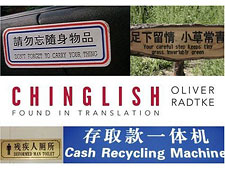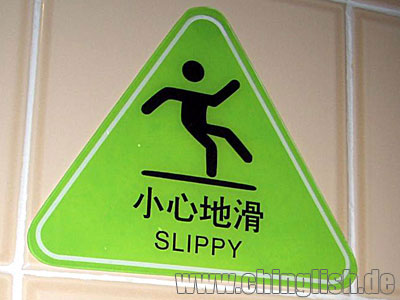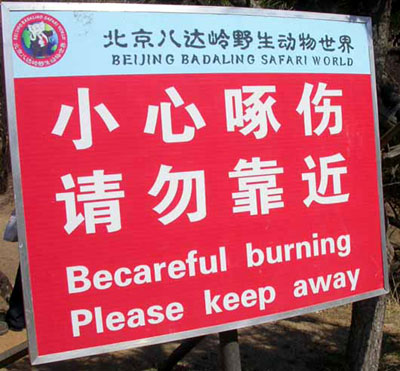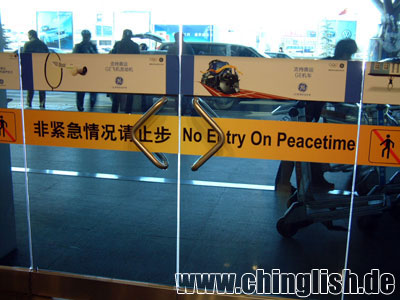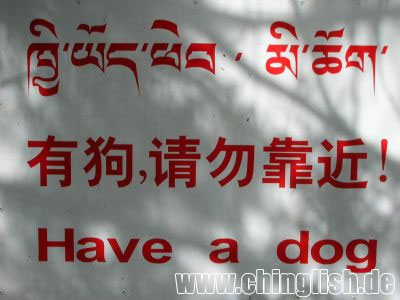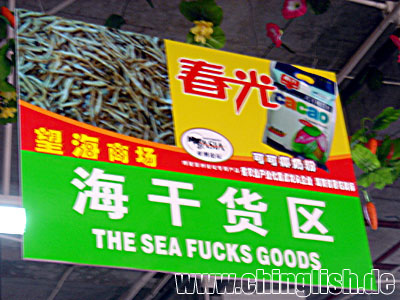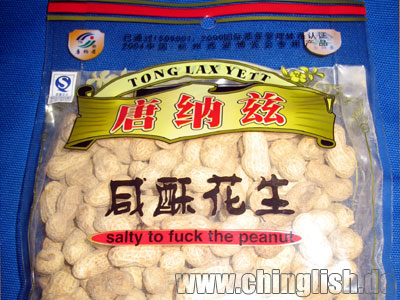Spread the word.
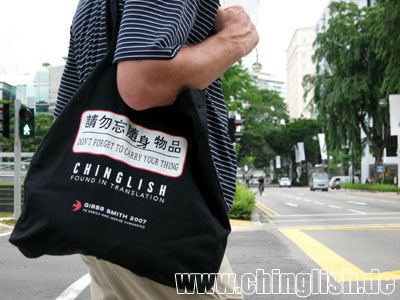
My publisher, Gibbs Smith, sent me a bit of merchandising which is now extensively used all over Singapore (thanks for modelling, WR).
Receive your own "Chinglish - Found in Translation" bag for sending in 5 unique Chinglish beauties!
Files have to be >300kb and different from the ones on display. Mail box is at chinglish at olliradtke.de. Thanks.
Update Aug 16:
Thanks everybody for the overwhelming support and many new Chinglish beauties! All bags are gone.
Please continue to support the cause of chinglish.de!
